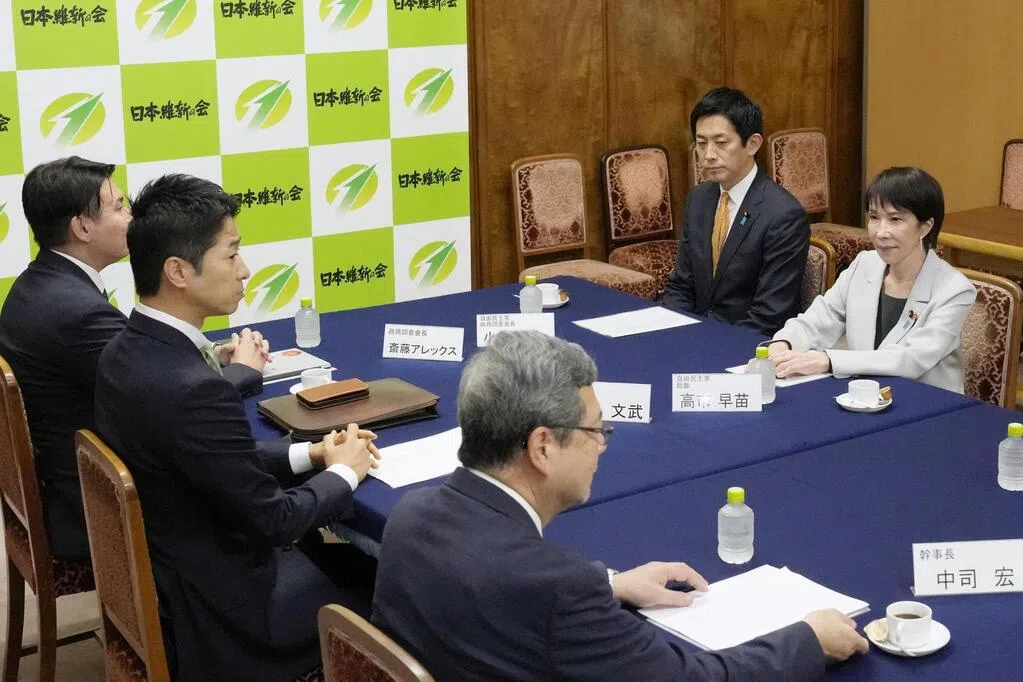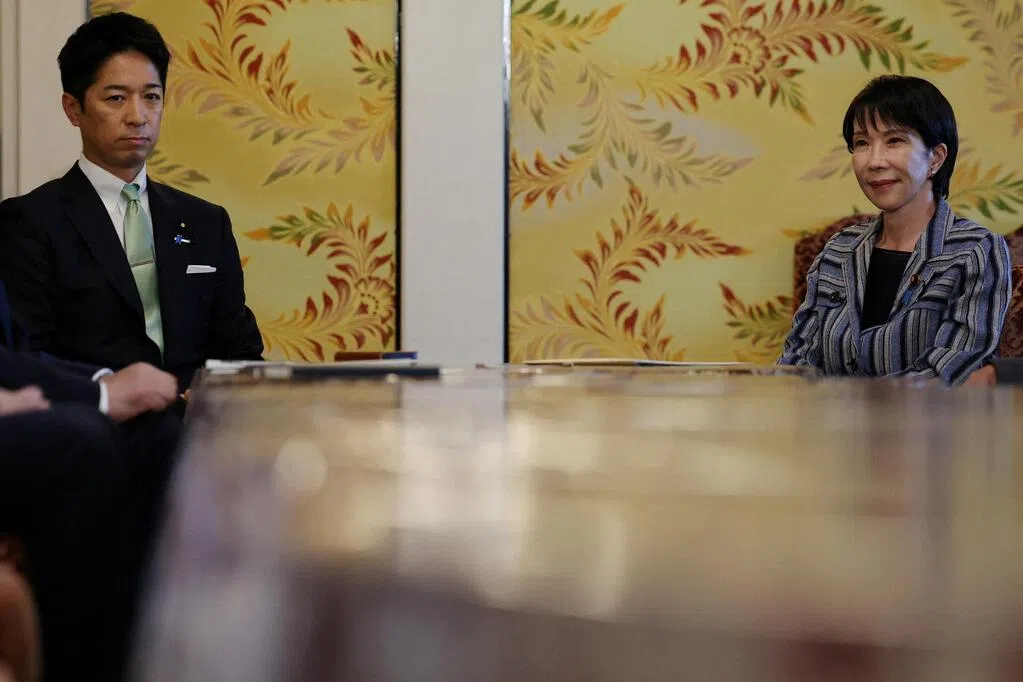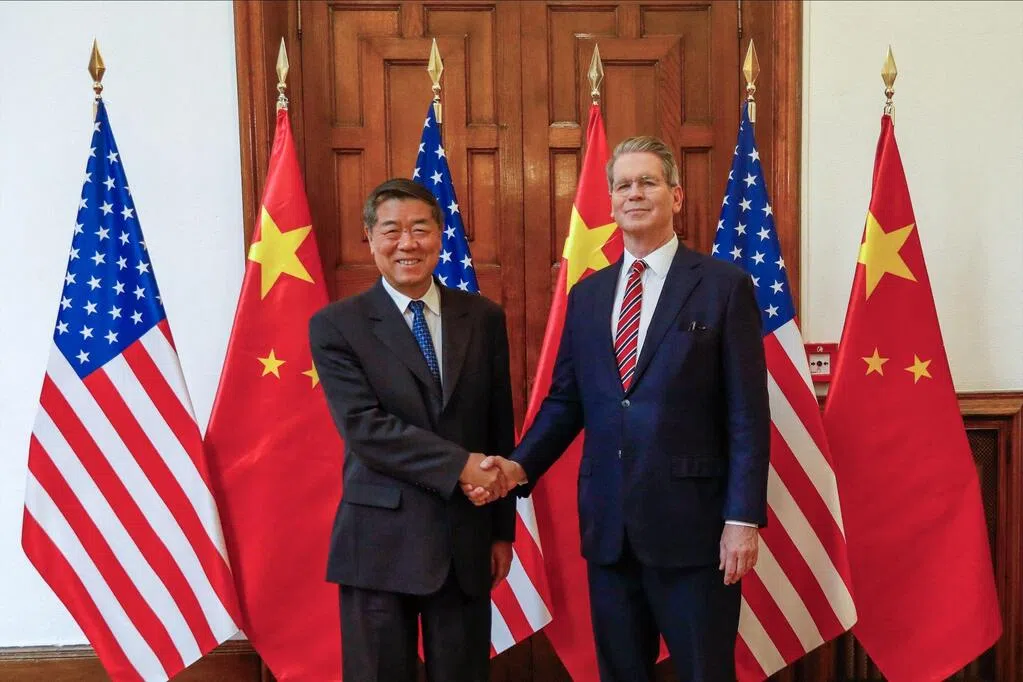On the eve of the prime ministerial election in Japan, Sanae Takaichi, president of the ruling Liberal Democratic Party, and Hirofumi Yoshimura, leader of the Restoration Party, officially signed a document finalizing the formation of a coalition government. The document stipulates that the two parties will cooperate in the extraordinary prime ministerial election to be held on Tuesday (October 21st). Takaichi is expected to secure victory, and Japan will usher in a conservative female prime minister.
After being elected party president on October 4th, Takaichi parted ways with the LDP's longtime governing partner, Komeito, on the 10th. Having initially believed her plans for the prime ministership were thwarted, she quickly aligned herself with the Restoration Party on the 15th. Five days later, on Monday (the 20th), she and the Restoration Party officially signed a coalition agreement.
At the signing ceremony, Takaichi beamed, saying, "Without stable politics, strong economic and foreign policies are impossible. We (referring to the two parties) have engaged in sincere and lengthy policy discussions and look forward to working together with the Restoration Party to realize our national vision. Today will be the starting point for strengthening Japan's economy, and we will build a country that is responsible for future generations."
Yoshimura said, "The Restoration Party is a small party, but we share the LDP's national vision and desire for a strong nation. Japan faces a difficult security environment, and I was deeply moved by her (Takaichi's) strong passion to move Japan forward. I hope we can work together to create a country that children who currently lack the right to vote will truly appreciate when they grow up."
The Restoration Party is currently collaborating with the LDP through "extra-cabinet cooperation," meaning it will not accept cabinet positions. However, the Restoration Party has stated that it will join the cabinet after demonstrating its strength within the coalition.
Further Reading


In a coalition government with the Liberal Democratic Party, the Restoration Party proposed 12 policy proposals, including one on which political donations, which conflicted with the LDP's views, have been shelved and deferred.
Areas of cooperation between the two parties are the economy and foreign and security policies. They agreed to revise three security-related documents ahead of schedule and plan to establish an independent foreign intelligence agency in 2027 and promote counterintelligence legislation. Furthermore, both parties are interested in restarting nuclear power plants and developing next-generation nuclear reactors.
Takaichi, 64, is a hawkish figure within the LDP and a policy successor to former Prime Minister Shinzo Abe. She is expected to implement "Abenomics" on the economy, supporting aggressive monetary easing and increased government spending. On security, she will actively expand the military and promote security cooperation in the Indo-Pacific region.
The combined number of members of the new LDP-Restoration Party coalition in the House of Representatives falls two seats short of the majority required for Takaichi to secure the prime ministerial nomination. It is understood that Takaichi has also wooed the Conservative Party and the Parti Cantonale (Parti Cantonale), two ultra-conservative parties in the Diet, in order to secure a majority of seats to become prime minister.
The Liberal Democratic Party has been in power almost uninterruptedly since 1955, but lost conservative votes and its majority in both the House of Councillors and the House of Representatives elections last year. Takaichi is striving for the prime ministership this time. Besides her strong desire to become a female prime minister, she is also expected to work to form alliances with various conservative parties and guide the LDP back to conservative policies.



